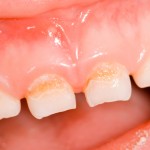
Dental Caries remains a significant public health problem affecting 60% to 90% of schoolchildren and the vast majority of adults. The use of topical fluorides are an important element in caries prevention and milk has been considered an attractive vehicle for delivering additional fluoride in public health programmes. While the potential interaction between fluoride and milk reducing the bioavailability of fluoride ions has been raised, the bioavailability of fluoride in milk is considered to be satisfactory.
Methods
The Cochrane Oral Health Group’s Trials Register, CENTRAL, Medline, Embase, the U.S. National Institutes of Health Trials Register and WHO International Clinical Trials Registry Platform databases were searched without limitation. Randomised controlled trials (RCTs), with an intervention and follow-up period of at least two years, comparing fluoridated milk with non-fluoridated milk were considered. Two reviewers independently extracted data and assessed risk of bias with the Cochrane risk of bias tool. Prevented fraction (PF) was the measure of treatment effect presented for caries increment.
Results
- Only one unpublished RCT involving a total of 180 children aged three years at study commencement was included.
- The study was considered to be at high risk of bias.
- After 3 years,
- Permanent teeth had a caries reduction (mean difference (MD) -0.13, 95% CI -0.24 to -0.02)
- Primary teeth had a caries reduction (MD −1.14, 95% CI −1.86 to −0.42),
- For primary teeth this is a substantial reduction, equivalent to a prevented fraction of 31%.
- For permanent teeth, the disease level was very low in the study, resulting in a small absolute effect size.
Conclusions
The authors concluded:
There is low quality evidence to suggest fluoridated milk may be beneficial to schoolchildren, contributing to a substantial reduction in dental caries in primary teeth. Due to the low quality of the evidence, further research is likely to have an important impact on our confidence in the estimate of effect and is likely to change the estimate. There was only one relatively small study, which had important methodological limitations on the data for the effectiveness in reducing caries. Furthermore, there was no information about the potential harms of the intervention. Additional RCTs of high quality are needed before we can draw definitive conclusions about the benefits of milk fluoridation.
Comments
This update of a 2005 Cochrane review was only able to include one RCTs of high risk of bias. While that study did suggest a substantial reduction in caries in the primary dentition it is a small study with a relatively small number of participants at high risk of bias so additional well conducted and reported high quality RCTs are needed to clarify the benefits of milk fluoridation.
Links
Yeung CA, Chong LY, Glenny AM. Fluoridated milk for preventing dental caries. Cochrane Database of Systematic Reviews 2015, Issue 9. Art. No.: CD003876. DOI: 10.1002/14651858.CD003876.pub4

Low quality evidence suggests fluoridated milk may be beneficial http://t.co/r13OB8Ynoh
@TheDentalElf Lactose free maybe beneficial~~~
Is there any evidence for that in humans? I can only find animal studies?
Thanks to @TheDentalElf for blogging #CochraneEvidence on fluoridated milk http://t.co/0dL6zu1GMV @CochraneOHG
Fluoridated milk for preventing dental caries http://t.co/r13OB8Ynoh
Fluoridated milk may be beneficial to schoolchildren http://t.co/r13OB8Ynoh
Don’t miss-Fluoridated milk:low quality evidence of benefit http://t.co/r13OB8Ynoh